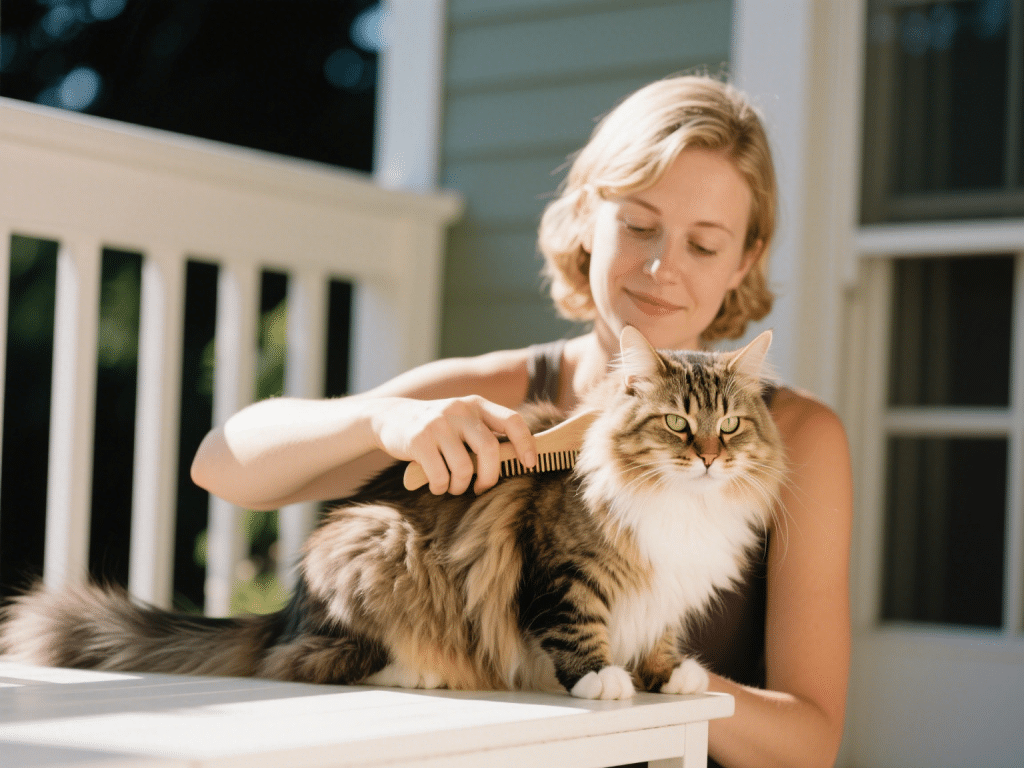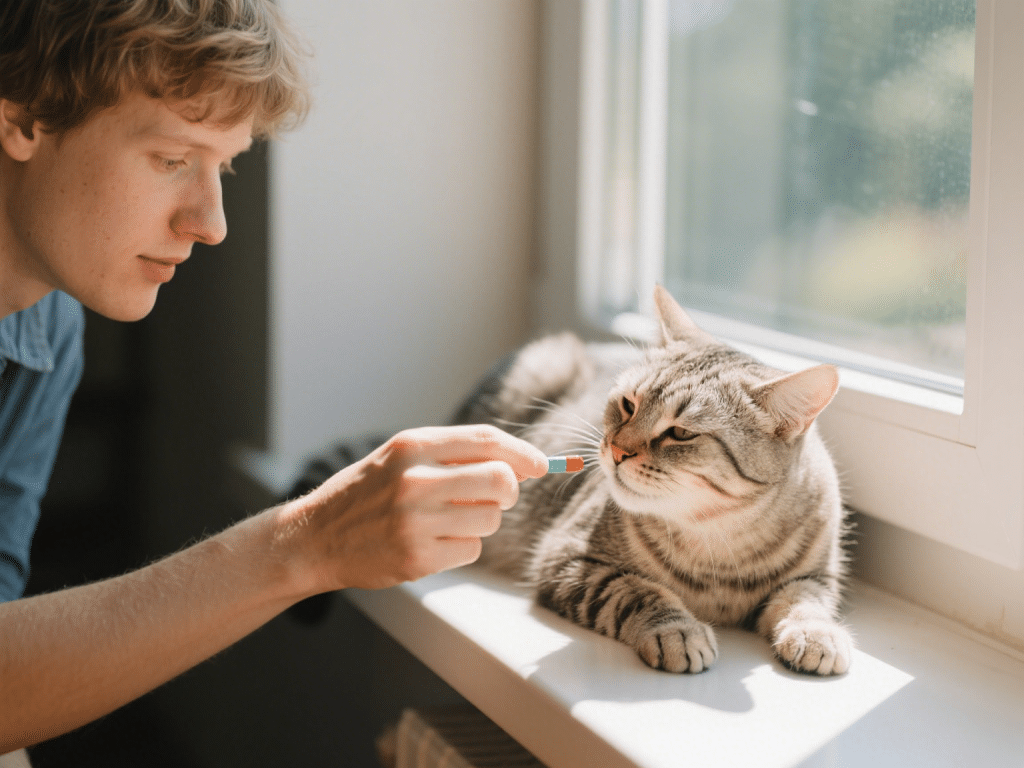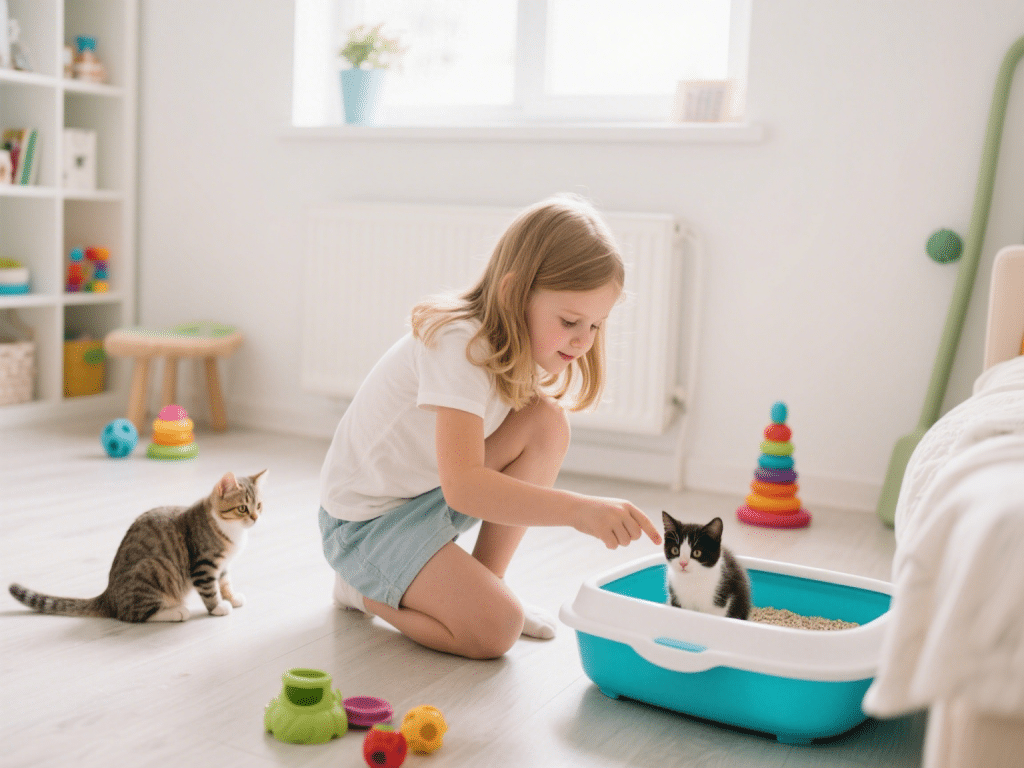
A Complete Guide to Turtle Tank Setup for Beginners
Setting up a turtle tank can feel daunting for first‑time enthusiasts. With over eight y...

Introduction
Hairballs plague up to 85% of cats at least once in their lifetime, especially long-haired breeds. While occasional hairballs are harmless, frequent vomiting and blockages can lead to dehydration and intestinal impaction. I’m Dr. Emily Hart, a feline behaviorist with 12 years in practice, here to share gentle, natural approaches that keep your cat comfortable and hairball-free.
1. Why Hairballs Happen
Cats groom themselves meticulously, ingesting shed fur that forms into masses in the stomach. Normally, hair passes through the digestive tract, but excess can accumulate.
2. Dietary Adjustments
High-Fiber Diets: Fiber binds fur and accelerates transit; add canned pumpkin (¼ tsp/day) or psyllium husk under vet guidance.
Specialized Formulas: Look for cat food labeled “hairball control” with added cellulose.
Hydration: Ensure fresh water availability; wet food boosts moisture intake and digestion.
3. Regular Grooming
Daily Brushing: Use a slicker brush or rubber mitt to remove loose undercoat before ingestion.
Deshedding Tools: For dense coats, a stainless-steel curry comb reduces matting.
Professional Grooming: Twice-annual trims for Persians can significantly cut down fur ingestion.
4. Safe Natural Supplements
Olive Oil or Fish Oil: A teaspoon mixed into food lubricates the digestive tract, easing fur passage.
Pumpkin Purée: Rich in fiber; start with ½ tsp and adjust based on stool consistency.
Slippery Elm Bark: Under vet supervision, it coats the GI lining, reducing irritation.
5. Probiotic Support
A healthy gut flora helps break down ingested fur. Select feline-specific probiotics containing Bifidobacterium animalis.
6. Monitoring & When to See a Vet
Watch for lethargy, anorexia, or straining—signs of obstruction. Chronic cases may require diagnostic imaging.
Conclusion
Natural remedies—from tailored diets to gentle grooming—provide safe, effective hairball management. By integrating these strategies into your routine, you’ll help your cat stay happier, healthier, and hairball-free.

Setting up a turtle tank can feel daunting for first‑time enthusiasts. With over eight y...

With years of rabbit rescue volunteering under my belt, I’ve seen firsthand how a lack o...

Hyperthyroidism affects up to 10% of senior cats, leading to weight loss, increased appeti...

IntroductionTraining kittens to use a litter box is a fundamental milestone for every cat ...

The Science-Backed Benefits of Dog CompanionshipOwning a dog extends far beyond companions...

The Canine Obesity Crisis: Why Prevention MattersCanine obesity affects over 50% of dogs i...
Comments on "Effective Natural Remedies for Cat Hairballs: A Vet-Approved Guide" :